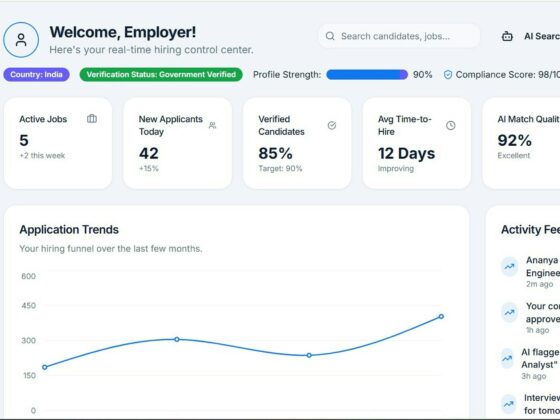
Last week at Unfold, we hosted a fast-paced, no-holds-barred session on how fintech is reshaping hospitality – and it was a full house.
Susanne Sandler (GM of Fintech) and Charlie Delamare (Senior Payments Solutions Architect Manager) led the charge, with a surprise appearance from Mews Founder Richard Valtr. They dived into how embedded finance is helping hoteliers earn more, deliver smoother experiences, and make payments disappear into the background – just as they should.
Here are five takeaways that really hit home.
1. Businesses are turning to embedded fintech solutions rather than banks
Fintech isn’t just growing. It’s shifting. And it’s leaving traditional banking behind. The panel said this will become more apparent in the short to medium term future.
Susanne explained: “10% of all financial flows in the US will be embedded by 2026 – that’s around USD $7 trillion – and we know that Europe tends to be a fast follower of the US.”
She continued: “It’s quicker, easier, and we’re seeing businesses perform better and do better. So much of what banks offer today isn’t modernized or helpful to specific industries. So, SaaS players like ourselves are learning how we can help customers earn more.”
2. Fintech is an integral part of any product or service, it cannot be a standalone solution
The group discussed how fintech works best when it is fully baked into your product – not tacked on.
“When fintech is embedded, you can make the product a lot better and your offering to customers a lot better,” explained Susanne. “You also increase revenue and efficiency, reduce costs, and manage cash flow more effectively. It results in an enhanced guest experience and a stronger business.”
Charlie, who was a happy Mews customer for three years before joining the company, added: “Payments are the hardest part of the guest journey because they are parting with their money. But payments are the most important part for hotels. When you make them seamless then both parties benefit.”
3. Super apps like Uber are the gold standard – and it’s down to embedded payments
Why do customers choose to wait longer for Ubers at airports rather than use local taxis right in front of them? It is because the experience is frictionless.
“There is definitely an irony in waiting because it’s more convenient than getting into a taxi immediately,” laughed Charlie.
However, irony or not, the group agreed this is exactly what has happened. Customers love Uber because the hassle of paying has been effectively removed from the journey with embedded payments.
“Fintech is the glue that holds super apps together. That’s why companies like Amazon and Facebook are working towards it,” explained Susanne.
4. Hospitality can learn from the way other industries interact with fintech
Want to see how fintech can supercharge an industry? Look at other markets. That’s how hospitality will continue to grow and potentially see “mind-boggling” returns.
Susanne explained: “I have so many friends who are founders and CEOs within other tech industries. It saddens me that we haven’t brought all of their offerings to hospitality.
“In the restaurant space Toast is well known for capital lending and payroll tools. In e-commerce, Shopify offers a number of payroll and capital solutions. Salons also have technology to help manage staff who often have similar working patterns to those in hospitality.
“I see good things happening and that is why the revenue you see these other industries generate is mind-boggling. It’s up to us, and others, to create these customizable solutions so hotels can see the same benefits.”
5. Flexible rates are “leaving money on the table”
The session ended with Mews Founder Richard discussing one of his pet peeves: the industry offering flexible rates as a standard rather than a premium offering. He explained how hotels believe they will lose money if they change their approach, despite the data saying otherwise.
“We have seen it with thousands of hotels when we run experiments,” said Richard. “There might be a difference in the first two months, but longer term offering flexible or non-flexible bookings as a standard doesn’t impact total bookings.
“Hoteliers assume that chargeback rates will go through the roof if they offer non-flexible rates as a standard but they won’t.”
As Richard put it, flexible rates are often “where you’re leaving the most money on the table.”
The challenge now? Convincing an industry rooted in tradition to embrace a future powered by data, fintech and embedded intelligence.
Watch the full session of ‘The Future is Embedded: Unlocking Hotel Growth with Fintech’ here.
Discover how embedded payments can transform your business.







